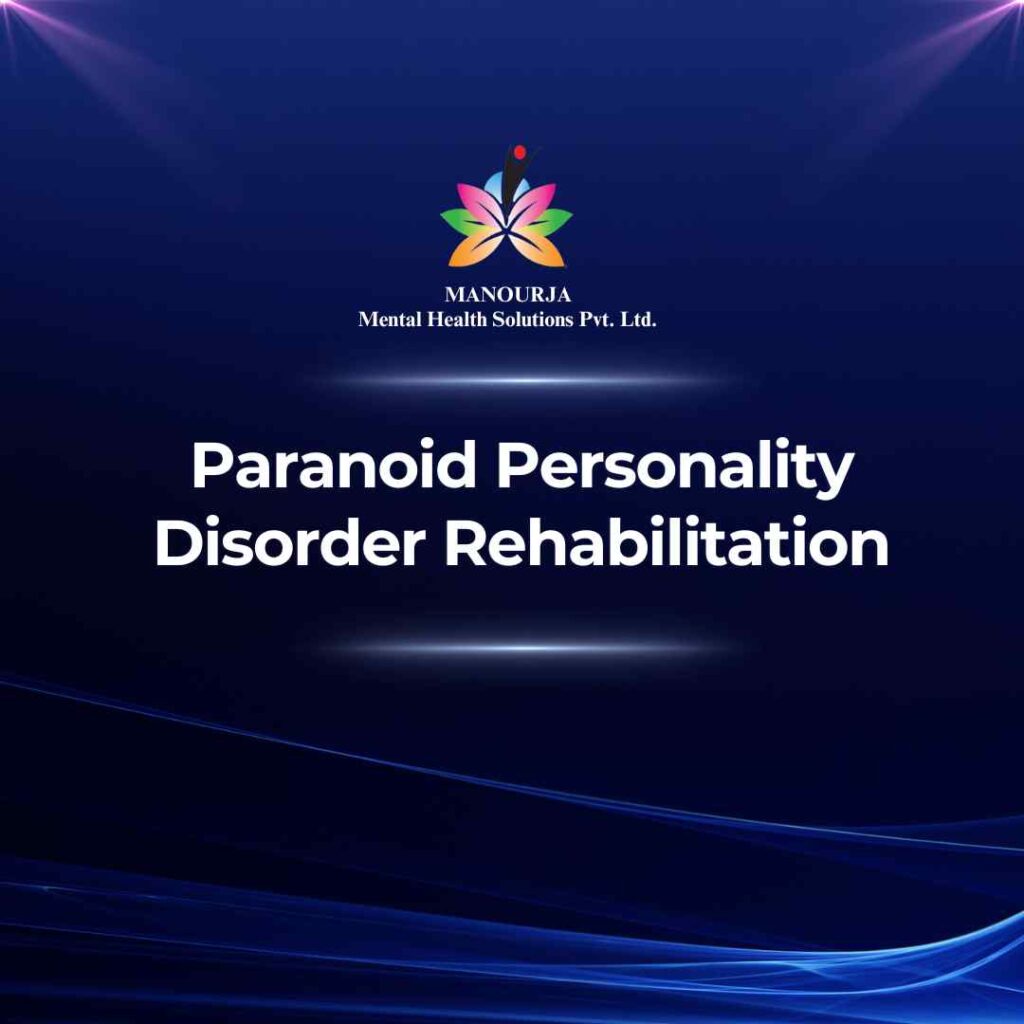Paranoid Personality Disorder Rehabilitation

Paranoid Personality Disorder (PPD) is a mental health condition characterized by a pervasive distrust and suspicion of others. Individuals with PPD often interpret the motives of others as malevolent, leading to significant social and occupational difficulties. Recognizing the signs and symptoms can help in determining the appropriate type of psychosocial rehabilitation needed, whether outpatient (OPD) or inpatient (IPD).
Signs and Symptoms of Paranoid Personality Disorder
- Suspicion: Unfounded beliefs that others are trying to harm, deceive, or exploit them.
- Doubt about Loyalty or Trustworthiness: Reluctance to confide in others due to unwarranted fear that the information will be used maliciously against them.
- Perception of Attacks: Tendency to perceive neutral or friendly actions of others as insulting or threatening.
- Holding Grudges: Unforgiving nature, harboring resentment towards others.
- Hostile and Argumentative: Often angry and hostile, which can provoke reactions in others that then confirm their original expectations.
Indicators for Outpatient Psychosocial Rehabilitation (OPD)
- Individuals who display mild to moderate symptoms that do not severely disrupt daily functioning.
- Presence of a stable support system that can assist in the management and adherence to treatment outside a hospital setting.
- Ability to maintain safety in a non-controlled environment without posing a risk to themselves or others.
Indicators for Inpatient Psychosocial Rehabilitation (IPD)
- Severe symptoms that significantly impair social and occupational functioning.
- High risk of harm to self or others, necessitating a controlled environment for safety and intensive treatment.
- Ineffectiveness of outpatient treatments or lack of support systems in the community.
Factors Influencing the Decision
- Severity and impact of the symptoms on daily functioning.
- Risk assessment regarding potential harm or danger.
- Availability and effectiveness of support networks.
- Previous treatment history and responsiveness to outpatient interventions.
How Psychosocial Rehabilitation Aids in Treating Paranoid Personality Disorder
Psychosocial rehabilitation focuses on improving social skills, communication, and relationships, helping individuals to interpret social cues and intentions more accurately, reducing paranoia and improving overall functioning.
Specific Techniques and Approaches at MANOURJA
- Cognitive Behavioral Therapy (CBT): Helps in identifying and challenging distorted beliefs and perceptions, and developing healthier thought patterns.
- Dialectical Behavior Therapy (DBT): Assists in managing emotions and reducing conflicts in relationships.
- Social Skills Training: Provides practical tools to improve interaction and reduce misunderstandings in social settings.
- Group Therapy: Facilitates learning and practicing new skills in a safe environment, and provides peer support.
- Family Therapy: Educates family members about the disorder and teaches strategies for better communication and support.
Steps in Psychosocial Rehabilitation at MANOURJA
- Comprehensive Assessment: Detailed evaluation to understand the specific symptoms, severity, and impact on functioning.
- Treatment Planning: Developing a personalized plan that addresses both the psychological and social needs of the individual.
- Implementation of Therapeutic Interventions: Structured therapy sessions aimed at cognitive restructuring, emotional regulation, and social skills enhancement.
- Regular Monitoring and Adjustment: Assessing progress and making necessary adjustments to the treatment approach to ensure effectiveness.
- Integration and Support: Assisting individuals in applying new skills in real-life situations and building a support network to help maintain gains and manage symptoms.
“Step by step, day by day, you are more than your fears.”
